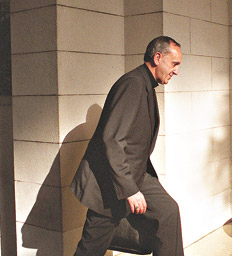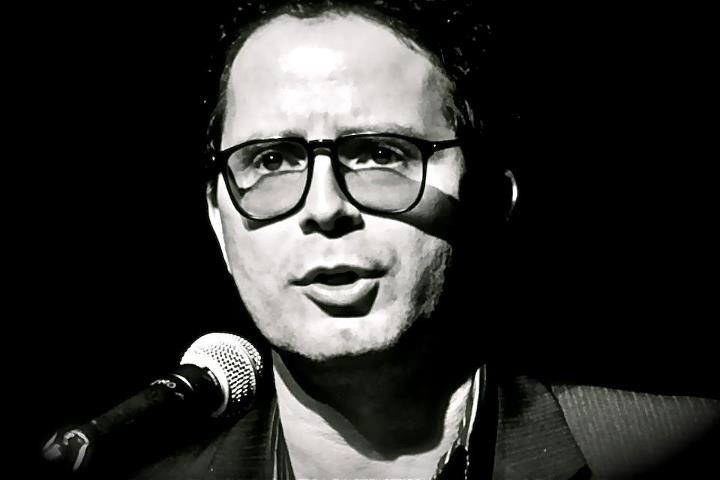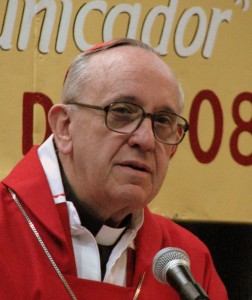Un ersatz
Por Horacio Verbitsky

Entre los centenares de llamados y mails recibidos, elijo uno. “No lo puedo creer. Estoy tan angustiada y con tanta bronca que no sé qué hacer. Logró lo que quería. Estoy viendo a Orlando en el comedor de casa, ya hace unos años, diciendo ‘él quiere ser Papa’. Es la persona indicada para tapar la podredumbre. Es el experto en tapar. Mi teléfono no para de sonar, Fito me habló llorando.” Lo firma Graciela Yorio, la hermana del sacerdote Orlando Yorio, quien denunció a Bergoglio como el responsable de su secuestro y de las torturas que padeció durante cinco meses de 1976. El Fito que la llamó desconsolado es Adolfo Yorio, su hermano. Ambos dedicaron muchos años de su vida a continuar las denuncias de Orlando, un teólogo y sacerdote tercermundista que murió en 2000 soñando la pesadilla que ayer se hizo realidad. Tres años antes, su íncubo había sido designado arzobispo coadjutor de Buenos Aires, lo cual preanunciaba el resto.
No estoy seguro de que Bergoglio haya sido elegido para tapar la podredumbre que redujo a la impotencia a Joseph Ratzinger. Las luchas internas de la curia romana siguen una lógica tan inescrutable que los hechos más oscuros pueden atribuirse al espíritu santo, ya sean los manejos financieros por los que el Banco del Vaticano fue excluido del clearing internacional porque no cumple con las reglas para controlar el lavado de dinero, o las prácticas pedófilas en casi todos los países del mundo, que Ratzinger encubrió desde el Santo Oficio y por las que pidió perdón como pontífice. Ni siquiera me extrañaría que, brocha en mano y con sus zapatos gastados, Bergoglio emprendiera una cruzada moralizadora para blanquear los sepulcros apostólicos.
Pero lo que tengo por seguro es que el nuevo obispo de Roma será un ersatz, esa palabra alemana a la que ninguna traducción hace honor, un sucedáneo de menor calidad, como el agua con harina que las madres indigentes usan para engañar el hambre de sus hijos. El teólogo brasileño de la liberación Leonardo Boff, excluido por Ratzinger de la enseñanza y del sacerdocio, tenía la ilusión de que fuera elegido el franciscano de ancestros irlandeses Sean O’Malley, que carga con la diócesis de Boston, quebrada por tantas indemnizaciones que pagó a niños vejados por sacerdotes. “Se trata de una persona muy vinculada a los pobres porque trabajó mucho tiempo en América Latina y el Caribe, siempre en medio de los pobres. Es una señal de que puede ser un papa diferente, un papa de una nueva tradición”, escribió el ex sacerdote. En la Silla Apostólica no se sentará un verdadero franciscano sino un jesuita que se hará llamar Francisco, como el pobrecito de Asís. Una amiga argentina, me escribe azorada desde Berlín que para los alemanes, que desconocen su historia, el nuevo papa es tercermundista. Menuda confusión.
Su biografía es la de un populista conservador, como lo fueron Pío XII y Juan Pablo II: inflexibles en cuestiones doctrinarias pero con una apertura hacia el mundo, y sobre todo, hacia las masas desposeídas. Cuando rece su primera misa en una calle del trastevere o en la stazione termini de Roma y hable de las personas explotadas y prostituidas por los poderosos insensibles que cierran su corazón a Cristo; cuando los periodistas amigos cuenten que viajó en subte o colectivo; cuando los fieles escuchen sus homilías recitadas con los ademanes de un actor y en las que las parábolas bíblicas coexisten con el habla llana del pueblo, habrá quienes deliren por la anhelada renovación eclesiástica. En los tres lustros que lleva al frente de la Arquidiócesis porteña hizo eso y mucho más. Pero al mismo tiempo intentó unificar la oposición contra el primer gobierno que en muchos años adoptó una política favorable a esos sectores, y lo acusó de crispado y confrontativo porque para hacerlo debió lidiar con aquellos poderosos fustigados en el discurso.
Ahora podrá hacerlo en otra escala, lo cual no quiere decir que se olvide de la Argentina. Si Pacelli recibió el financiamiento de la Inteligencia estadounidense para apuntalar a la democracia cristiana e impedir la victoria comunista en las primeras elecciones de la posguerra y si Wojtyla fue el ariete que abrió el primer hueco en el muro europeo, el papa argentino podrá cumplir el mismo rol en escala latinoamericana. Su pasada militancia en Guardia de Hierro, el discurso populista que no ha olvidado, y con el que podría incluso adoptar causas históricas como la de las Malvinas, lo habilitan para disputar la orientación de ese proceso, para apostrofar a los explotadores y predicar mansedumbre a los explotados.


